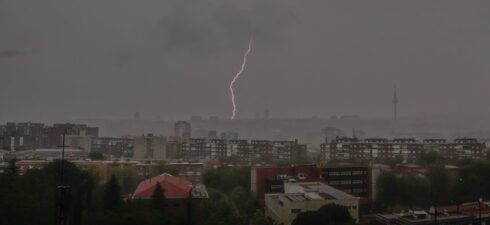By Alfred Clarke
A recent cracking of the inside slabs on a fast track rail tunnel in Spain led to a spat between regional politicians from Spain and Madrid.
A decade has passed since the team that dug the 7km tunnel between Malaga, Spain and Antequera hit an aquifer.
The new fracture occurred in the tunnel beneath the village of 2,500 people.
The main rail tunnel between Malaga, Spain and Madrid is where the collapse occurred.
The incident took place on 23 July, during maintenance that was vital after the torrential rains of spring.
The plan didn’t work out as planned and water began to leak from cracks in the rock and damage the tunnel.
The overlying aquifers are embedded within the porous limestone rock. This is what causes the concrete to crack inside the tunnel.
READ MORE Al Andalus, Spain’s poshest train (think Orient Express), has a new route. But what is it like?

The first time this issue was discovered was during the construction of two parallel tunnels around the middle 2000s.
Now that another fracture is a possibility, the problem has been partially fixed but not completely. A risk factor always loomed above.
The village already has some of the most expensive water prices in Spain.
ADIF, the national rail body, had to pay to deliver water for the past decade because of a shortage due to the cutting off of the aquifer.
According to official figures, some €15.7 million over the last five years alone had to be spent in bringing in water tankers for the local population. This figure would be more than twice as high if we took the prior years.
Currently, the village is supplied with 450,000 per day, costing around €9,000.
The cost to the government could be much higher.
Experts believe that at least one tunnel could be closed for up to six months.
This leaves only a single tunnel open for the remaining trains to pass through – dozens a day to Madrid and Barcelona, as well as Cordoba and Sevilla, which will now have to go both ways through one single tunnel.
READ MORE: Feasibility study for Costa del Sol train – what’s involved in building the transport upgrade?


At the moment, the delays are between 10 and 20 mins per train. This is often compensated by the rest.
There are concerns, however, that if there is a problem with the other tunnel, it could cause a major issue for tourist infrastructure.
Ray Ward, an expat expert, explained: “If the fracture spread into the tunnel and leaked out in the other one, it would be a serious problem.”
He continued, “If this were to occur, it would have a huge impact on the tourism sector.”
“There are about 22 trains that run between Madrid, Spain and Barcelona, on a daily schedule. These trains carry around 10,000 tourists per day.
“These trains are a great way to boost the tourism industry in Malaga and surrounding areas.
If the train line were to be closed, the hotspots that we are familiar with today, such as Malaga, would lose their popularity, because it’s not a feasible option for travellers.
The knock-on effects and costs would be enormous.
Click here for more Spain News by The Olive Press.
 Costa News Spain Breaking News | English News in Spain.
Costa News Spain Breaking News | English News in Spain.







